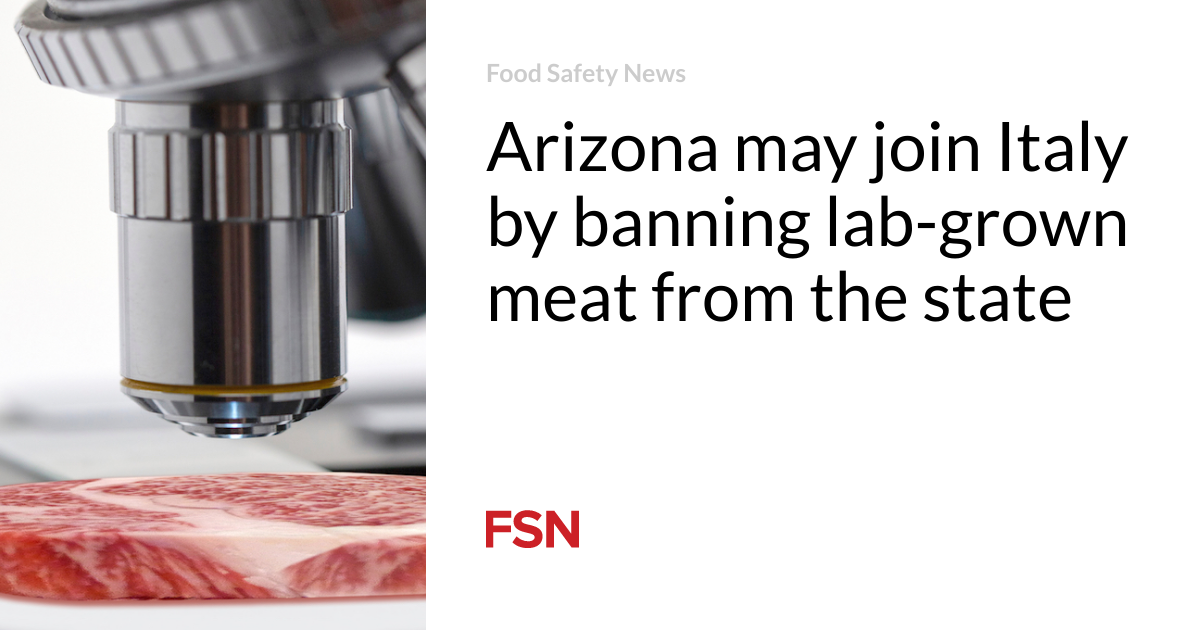Reminds me of cities banning cars to prevent horse drawn carriages from being obsolete. Stupid.
I guess the meat is not the same if nothing suffer in the process.
I mean, you can really taste the suffering
More republican virtue signaling bullshit
Also this was pretty lulzy:
Arizona State Rep. David Marshall, R-Snowflake, and four co-sponsors have introduced House Bill 2121, prohibiting cell-cultured animal products.
I thought the article was dunking on him at first, but it turns out Snowflake isn’t just a conservative state of mind, it’s also a small town in Arizona.
Hahaha this is fucking hilarious
I think “vice signalling” makes more sense here

Why did Italy ban lab-grown meat from Arizona in the first place?
I’m excited to try lab grown meat when it’s more widely available. It’s one of the few upcoming technologies that I can actually fully get behind.
Lab grown meat huh…
Anyone can tell me the taste of lab grown meat compared to natural meat ?Reports say they taste identical, because it’s literally the muscle being grown.
Your assumption is that all meat tastes the same. Try eating a free range Argentinian steak and a cheap Tesco value steak… They are not the same.
I cannot judge grown meat, but meat taste greatly varies
It’s often parroted by people who haven’t had meat, ever. Because even different parts of the same animal have different texture. And meat quality depends massively on the diet and upbringing the animal had.
Doesn’t matter if you know how to prepare it properly.
Yes and no.
Preparation can work wonders but it won’t make you think you’re eating venison when you’re actually eating Tesco value horse meat
Yes, but you can make the horse meat delicious…not comparable just delicious
Absolute 100% grade A bullshit.
Yes you can make a decent cheap steak good but in no way are you going to get as good a cook as a as a highly rated prime cut.
You are talking straight out of your asshole on this one.
Oh wow, you’ve been hard at work. -3500 now! It was just yesterday I was praising you for making -2000!! ❤️
It’s hard when I get so many up votes when I happen to agree with the hammer sickle mob.
It’s been a year or so since I’ve looked into it, but from what I’ve seen the issue isn’t taste, it’s that the texture is awful. That’ll obviously improve with time though.
deleted by creator
Tast… no. However I can assume it has less plastic in it.
at this point I wouldn’t even make that assumption
I haven’t tasted myself but the consensus from what I saw is that “is dry but very good” it doesn’t cook well in a BBQ but in dishes works well.
It doesn’t mean anything. When this product is mature enough and ready to be mass marketed, the bourgeoisie will simply do the good old lobbying of the government to unban it
This ban is completely pointless because lab grown meat will always be an expensive nieche product anyway.
Not at all. The goal is getting the price comparable. They’re pretty close. It’s SO much cheaper to grow it than to raise actual animals. And you don’t have to worry about your animals getting sick, infecting the others, and killing off an entire group.
You do have to worry about infections. Not in the same way, but yeah. Those cells are alive and they can be infected.
I suspect an infection would actually be far more costly, and far more difficult to control. Keep in mind it’s grown vats with a shitload of plumbing attached. Animals have an immune system… these vats don’t. They rely on remaining completely sterile, except for the meat-cells.
Cattle animals are routinely fed a ton of antibiotics in their regular feed. It’s not their “immune systems” keeping them free from infection.
The risk of infection during the growth process of cultured meat is lower than in traditional livestock farming. This is because the controlled environment of a bioreactor can be maintained under strict sterile conditions, minimizing the chances of contamination.
Bioreactors (vats) used for growing cultured meat are designed to be aseptic environments where the risk of exposure to pathogens is greatly reduced compared to open farming. The growth medium and other inputs are sterilized and carefully monitored, reducing the likelihood of introducing pathogens, unlike conventional animal farming where antibiotics are often used to prevent infections in crowded conditions, cultured meat production doesn’t require antibiotics, reducing the risk of developing antibiotic-resistant bacteria. And since cultured meat production is a closed system, there is less chance for external contamination from sources like other animals, human handlers, space aliens because I know you’re reading this right, or the environment. Also, cultured meat production is subject to regulatory oversight to ensure safety and quality standards are met, similar to other food production methods.
So, just to clarify…. They take all those precautions to prevent an infection, because…. There is a risk of infection… right?
While certainly far from perfectly analogous, my experience with sourdough starter (which is a yeast culture,) says that when it goes off (specifically serratia marcescens) the entire starter needs to be scrapped; and the “bioreactor” (that would be a mason jar, heh.) needs to be sterilized in the dish washer.
As one scales the reactors to comercially-viable size, the risks and costs increase- simply by the mere increase of inputs increasing the risk that something is missed.
As for antiboitic use in cattle, this is certainly common, but it’s also far from universal. My big-box grocery store sells antibiotic-free meat and antibiotic free dairy; and the chain butcher sells it exclusively.
I’m not trying to defend natural meat, but dealing with and preventing infection is a necessity; the largest drawback is scaling. Incidentally, a solution nobody seems to consider here is scaling the other direction- towards smaller, in-home bioreactors.
If they became small enough, maintenance free enough and inexpensive-to-operate enough; people would start adopting them. Like how people frequently grow their own veggies.
It seems that way now, but we don’t know how expensive it may or may not be in the future.
it may or may not be in the future
the problem is bioreactors just don’t scale - at all. Maybe there’s some kind of breakthrough but my personal opinion (as a biochemist working with bioreactors) is that not for a long time.
What is it about bioreactors that doesn’t scale?
Meat is also expensive if it wasn’t subsidized














